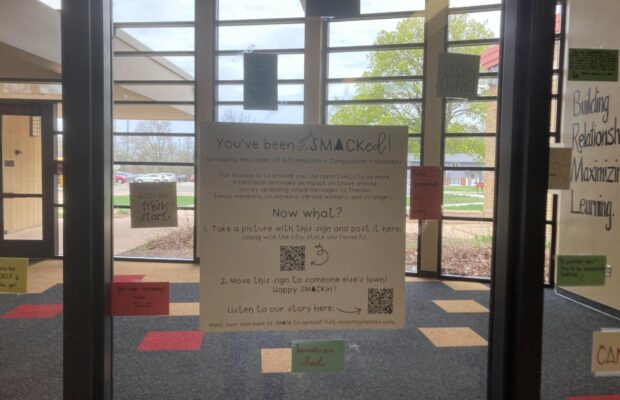Opening Up: English opens possibilities for exchange students
Now more than ever, the world is connected in many ways, and that’s the reason learning a second language has become such an important task. It opens doors not only in business, but in your personal life as well, for other languages allow you to communicate with a lot of different people, have new relationships, and experience new cultures — the main purpose of an exchange program, for example.
In my case, knowing English helped in several ways. I’m from Brazil and have been studying this language for 10 years, since I was 7. Improving my ability to speak English besides making the opportunity to live in the United States possible helped me to make friends faster because I could communicate with people already in my first day here. Being an exchange student is not easy, and I wonder how limiting it might it be if I could barely communicate.
Those who learn a new language can tell you that it is not only about the language itself. The language is based on a culture, and to learn it is a long process where you need to be in contact with the mentality of a place, of a people and with what else was taken to build it.
In my country, dedication to learning another language, such as English and Spanish mostly, is very common. Almost everybody gets involved with it. It’s one of our college’s test subjects, and many enterprises require it to keep their international relations and contacts. Besides, a lot of people are interested in being exchange students so than they can learn new things and bring them back to our country in ways to improve it.
In this exam you can choose between English, Spanish or French. It is so hard to get in (public universities are the best, so competition is huge, and the test is really difficult). People do their best to know every subject well. We start taking special courses as soon as we learn reading, so schools dedicated only to different languages are really common and popular in Brazil.
The same happens in Thailand, according to exchange student Naranineen Wama (Deni), who has been studying the language for six years. People in her country start at a very young age, in 4th grade, and take it as their second language, although it doesn’t mean they speak English in their daily lives. Besides English classes, students can choose to have math and science classes in English.
In Nigeria, on the other hand, people start learning English at home with their families. Exchange student Faith Aruwan said that it is important to start as soon as a kid’s first words, at the same time they are learning their own dialect. “English is like a borrowed language for Nigerians but is a cultural thing to know one of your dialects,” she said. And she said all of her classes, except for the ones where they study their language, are in English.
In an exchange program, one can find people who are able to help you. Every time when I make mistakes, my family and friends help me to use it in the correct way so I can learn faster and feel more comfortable to use the language, which is a good thing, because I used to think I was really good at English before I got here, but now I realize I was only good, since I learn tons of new things every day.
We agree that it is also a way to be professionally accomplished in any career. In Brazil, for example, people earn more money for knowing more than one foreign language and some aim to work for big enterprises in another country. “Because most of the companies collaborate with other companies abroad and do a lot of travelling, a lot of the Norwegian companies even do their meetings and communication in English with other Norwegians,” exchange student Simon Bjelland said about his country, Norway, where everybody is required to take English
English is a language of a lot of influence: movies, TV, music, media in general, so it’s everywhere, but it still asks for a lot of dedication. Maybe due to the lack of contact with another type of influence, Americans aren’t so interested in other languages or cultures, so my advice is to start early and to try to be as close as you can to it through the culture like movies and music, for example. Identify yourself with it. Understand how people’s minds work is the key to understand how their language works. “Go to the country that speaks the language you want to learn and adapt to it is the best way to deal with it,” Wama said.
Another language transports you to a different world, to a different people, to a different place, to a different way to think, to act, to express. As soon as you arouse your curiosity to things like that, better and easier it will be. “My advice is to start early; you learn language faster when you’re young. Dedicate yourself to it and try to use it as much as possible,” Bjelland said.
Doesn’t matter which language you choose. Be interested and go for it is already a good way to start, and I learned that it doesn’t matter where you go. A smile is a great way to get along with people, because there are no different languages for it.






You must be logged in to post a comment Login